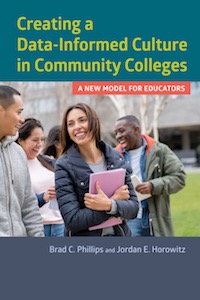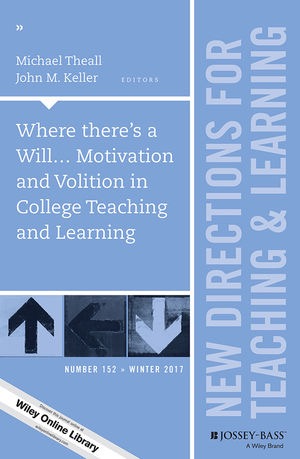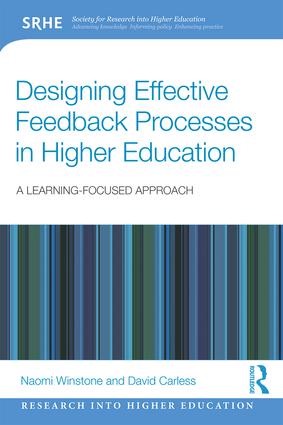assessment
Select an item by clicking its checkbox
One of the most unfortunate practices in instruction is a teacher trying to get “right answers” from students. This is not to say that getting your students to get it right is a bad thing–in fact, it’s very desirable. Usually what happens, however, is that the teacher is ...
Date Reviewed: December 10, 2019
Armed with strong backgrounds in institutional research and effective educational leadership, Phillips and Horowitz provide educators with an excellent resource for improving academic success with proven data use strategies and practices for community colleges. A central, uniting focus of the book is the need for information to be contextual, “useful, useable, and actionable” (9), and the need to enlist the widest number of stakeholders within its ecosystem. Administrators, researchers, faculty, and staff are encouraged to be co-partners in cultivating academic excellence.
Rather than placing data at the center, the authors advocate for a model that places “the use of data” at the center. The book is divided into three sections: (1) “A New Model for Data Use,” (2) “Putting the Model to Work,” and (3) “Case Studies of Data Driven Reform.”
The first part outlines a new model for data use that is user-friendly, improves educational instruction, and maximizes student success, combined with intentional adaptation to those it serves. For example, “few educators want to [be] analysts; they want to be provided with useful information and assisted in applying it toward student success” (56). Attention is also given to analytics, behavioral economics, organizational theory and habits, and the role of emotion in decision making.
In the second section, Phillips and Horowitz reveal a data use model that is put to work removing obstacles to student success. Specific consideration is given to leading and lagging indicators and the employment of backward mapping that begins with the identification of lagging indicators or goals. Attention is then refocused on the leading indicators that influence them, and which a college has the ability to control and reshape in proactive ways. Lagging and leading indicators have the ability to switch places from time to time. Scrutiny is also given to disaggregation and how different demographic subpopulations can impact the design of programs, services, and policies. The authors make use of a four stage, continuous improvement approach for use of educational strategies that moves from assessment, to planning, to implementation, to monitoring, and back again to assessment (110). They believe that data should be processed in manageable bites and reflect an institution’s unique cultural context and problem areas (176).
When evaluating outcomes of particular programs or services, Phillips and Horowitz call for academic institutions to review all other policies and programs that may or may not have an impact, positively or negatively. When introducing data and discussing it educators need to make sure that the content is real, that they include moments of humor, that they engage with the data, and that it works towards a consensus in decision-making. Resistance is another key factor for community colleges to scrutinize. College staff often bring their “own history of belief and experiences to the process and accept only information that confirms those beliefs” (104). Helping people to move outside their comfort zones and embrace change can assist in creating a positive, data-informed culture.
The last section provides actionable approaches and case studies drawn from community colleges from differing socio-economic and ethnic settings that intentionally choose to embrace a data-informed culture and foster proactive uses of information for student success. A failing institution was among the colleges examined – it had been on the verge of being shut down by state authorities because of dissatisfaction with its academic quality and student success.
This book is more than a guide for interpreting data by academic researchers. It also provides a research-based, comprehensive, and practical approach for improving academic excellence in all areas, and amongst all segments of the college community. This book will help teachers of religion and theology to increase their classroom effectiveness – in lecturing and interacting with students.
Date Reviewed: June 17, 2021
This MVP model provides a framework for considering various teaching and learning topics and can be extended into other areas such as professional development. While models ...
This MVP model provides a framework for considering various teaching and learning topics and can be extended into other areas such as professional development. While models such as MVP are particularly helpful in establishing the relationships among constructs and in explaining theoretical bases, integration and application of such models are equally important. This issue discusses applications of the model and provide concrete ideas for integrating it into ongoing teaching practice.
This is the 152nd volume of this Jossey-Bass higher education series. It offers a comprehensive range of ideas and techniques for improving college teaching based on the experience of seasoned instructors and the latest findings of educational and psychological researchers. (From the Publisher)
Date Reviewed: June 17, 2021
Including discussions on promoting student engagement with feedback, technology-enabled feedback, and effective peer feedback, this book:
-Contributes to the theory and practice of feedback in higher education by showcasing new paradigm feedback thinking focused on dialogue and student uptake
-Synthesises the evidence for effective feedback practice
- Provides contextualised examples of successful innovative
feedback designs analysed in relation to relevant literature
-Highlights the importance of staff and student feedback literacy in developing productive feedback partnerships
-Supports higher education teachers in further developing their feedback practice.
Designing Effective Feedback Processes in Higher Education: A Learning-Focused Approach contributes to the theory and practice of higher education pedagogy by re-evaluating how feedback processes are designed and managed. It is a must-read for educators, researchers, and academic developers in higher education who will benefit from a guide to feedback research and practice that addresses well recognised challenges in relation to assessment and feedback. (From the Publisher)
Date Reviewed: June 17, 2021




